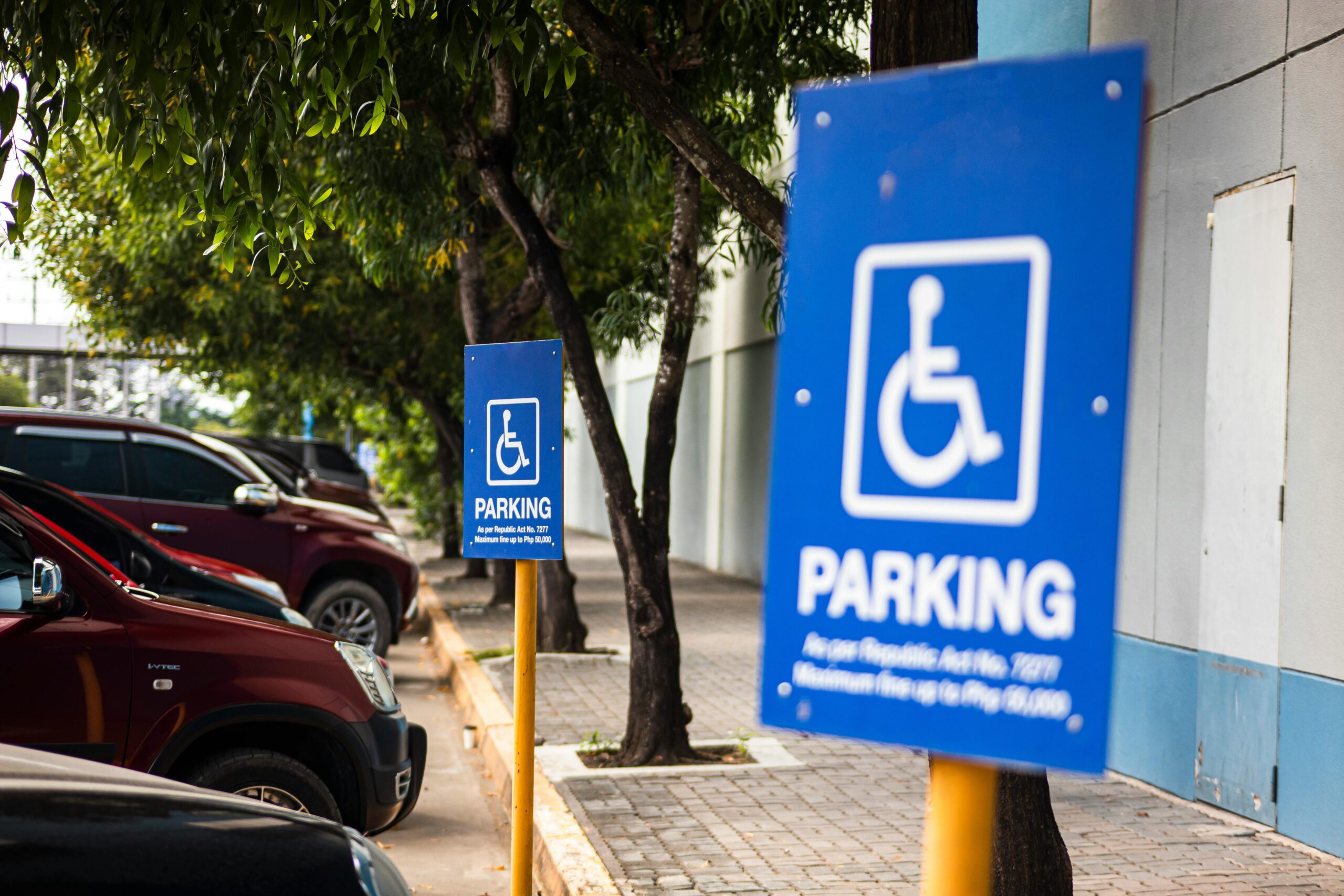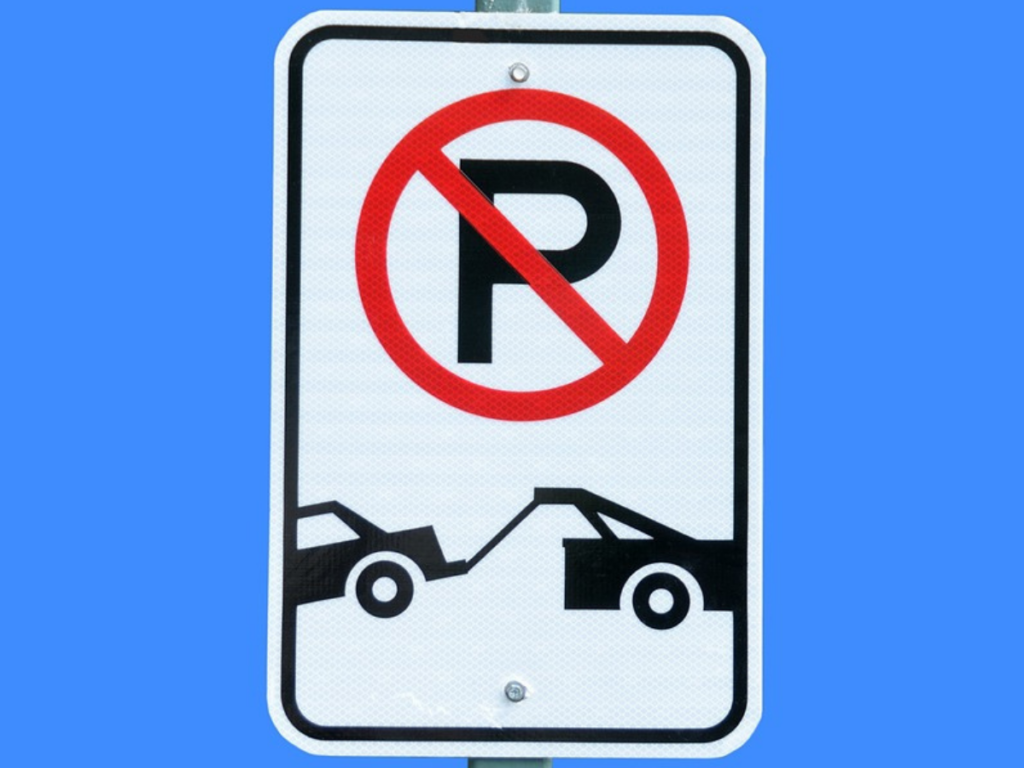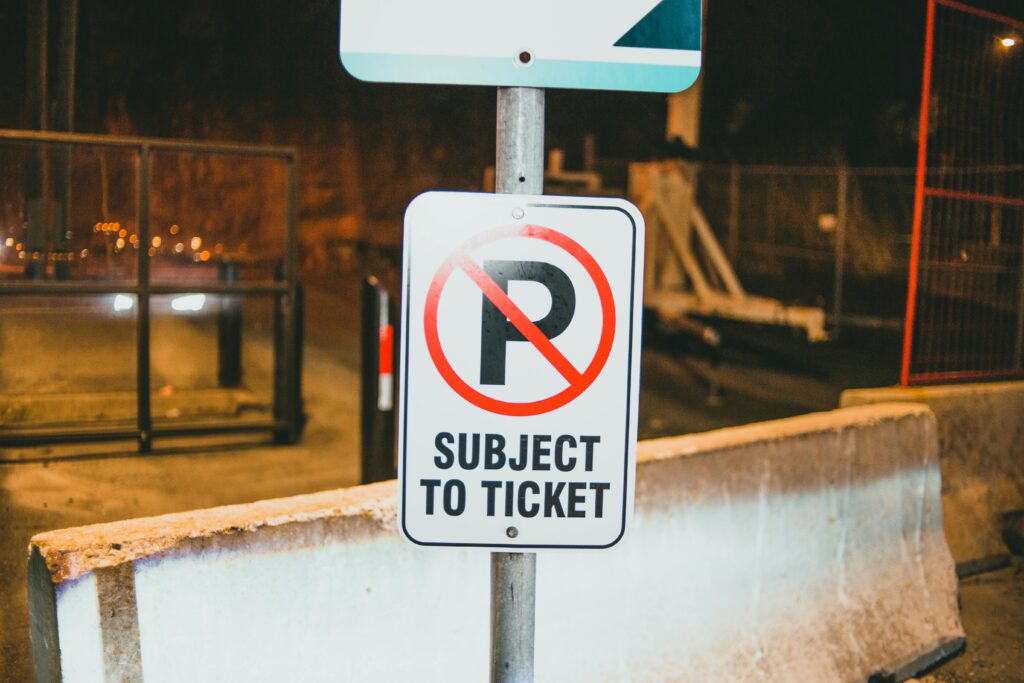Ensuring Fair Access: Why Enforcement of Handicap Parking Laws Matters

Handicap parking spaces represent a lifeline for individuals with disabilities, providing them with essential access to businesses, services, and amenities. The effectiveness of these designated spaces relies heavily on the enforcement of handicap parking laws though.
Today we’re explaining the importance of handicap parking enforcement and why it is crucial for ensuring fair access and promoting inclusivity in our communities.
The Importance Of Handicap Parking Enforcement
The importance of handicap parking enforcement cannot be overstated. Enforcing handicap parking regulations ensures that designated spaces are available for those who truly need them.
Without enforcement, these spaces may be unlawfully occupied by individuals without disabilities, leading to frustration, inconvenience, and even danger for those who require them.
By enforcing handicap parking laws, authorities uphold the rights of individuals with disabilities and promote fairness and equality in parking access.
Fair Access to Handicap Parking
Fair access to handicap parking is essential for individuals with disabilities to participate fully in society.
Accessible parking spaces provide them with the opportunity to access businesses, medical facilities, workplaces, and recreational venues safely and independently. However, fair access can only be achieved if handicap parking regulations are enforced consistently and effectively.
When accessible parking spaces are occupied by unauthorized vehicles, individuals with disabilities are unfairly denied access to essential services and opportunities.
Enforcing Handicap Parking Regulations
Enforcing handicap parking regulations involves monitoring designated spaces to ensure compliance with applicable laws and issuing citations to violators.
This may include checking for valid handicap parking permits, ensuring that spaces are not unlawfully occupied, and responding to reports of misuse or abuse.
By enforcing handicap parking regulations, authorities send a clear message that accessible parking spaces are reserved for individuals with disabilities and deter unauthorized parking in these spaces.
Consequences of Handicap Parking Violations
The consequences of handicap parking violations can vary depending on the jurisdiction and severity of the offense. In many cases, violators may be subject to fines, towing, or other penalties.
Unauthorized parking in handicap spaces denies individuals with disabilities access to essential services, causing inconvenience, frustration, and potentially compromising their safety. It also perpetuates a culture of disregard for accessibility and inclusivity, undermining efforts to create a more equitable society.
Repeat offenders may face escalating fines or other legal consequences. These consequences serve as a deterrent to unauthorized parking in handicap spaces and reinforce the importance of respecting handicap parking regulations.

Handicap Parking Law Enforcement Strategies
Effective handicap parking law enforcement requires a combination of strategies tailored to the unique needs and challenges of each community.
This may include regular patrols of parking facilities, collaboration with local businesses and organizations, and public awareness campaigns on the importance of handicap parking compliance.
One effective strategy is regular patrols of parking facilities by law enforcement officers to monitor for violations and deter unauthorized parking in handicap spaces. Collaborating with local businesses and organizations and public awareness campaigns on the importance of handicap parking compliance can also enhance enforcement efforts, as it can help identify problem areas and promote compliance.
Leveraging technology such as license plate recognition systems and mobile applications can streamline enforcement processes and improve efficiency. By implementing a combination of proactive strategies, authorities can effectively enforce handicap parking laws and ensure fair access for individuals with disabilities.
Impact of Enforcing Handicap Parking Laws
The impact of enforcing handicap parking laws extends beyond mere compliance; it directly affects the lives of individuals with disabilities.
When accessible parking spaces are consistently available and respected, individuals with disabilities can access essential services and participate in community life with greater ease and confidence.
Enforcing handicap parking laws also fosters a culture of inclusivity and respect for diversity, promoting a more equitable and compassionate society.
Ensuring Fairness in Handicap Parking Enforcement
Ensuring fairness in handicap parking enforcement requires a balanced approach that prioritizes compliance while also providing support and assistance to individuals with disabilities.
Authorities should be sensitive to the unique challenges faced by individuals with disabilities and provide resources and accommodations to facilitate access to parking facilities.
Community involvement and input are also crucial for ensuring that handicap parking enforcement policies and practices are fair and equitable for all.

Handicap Parking Ticket Fines
Handicap parking ticket fines serve as a deterrent to unauthorized parking in handicap spaces and help fund enforcement efforts and accessibility initiatives. The amount of fines may vary depending on the jurisdiction and severity of the offense.
Revenue generated from handicap parking ticket fines can be reinvested into accessibility improvements, public education campaigns, and enforcement efforts to enhance overall compliance with handicap parking regulations.
Community Support for Enforcing Handicap Parking Laws
Community support for enforcing handicap parking laws is essential for ensuring the effectiveness of enforcement efforts.
When individuals and businesses in the community understand the importance of handicap parking compliance and actively support enforcement efforts, it creates a culture of accountability and respect for accessible parking spaces.
Community involvement can take various forms, including reporting violations, advocating for stronger enforcement measures, and educating others on the impact of unauthorized parking in handicap spaces.
Role of Enforcement in Accessible Parking Provision
Enforcement plays a crucial role in ensuring the availability and accessibility of parking facilities for individuals with disabilities.
By enforcing handicap parking regulations, authorities help safeguard the rights of individuals with disabilities to access essential services and opportunities.
Enforcement efforts also contribute to the overall accessibility and inclusivity of communities, making them more welcoming and accommodating for individuals with disabilities. Ultimately, enforcement is an integral part of accessible parking provision and promoting fair access for all members of society.
***
The enforcement of handicap parking laws is vital for ensuring fair access and promoting inclusivity in our communities.
By enforcing regulations consistently and effectively, authorities uphold the rights of individuals with disabilities and create environments where everyone can access essential services and participate fully in community life.
It’s essential for individuals, businesses, and authorities to work together to support and prioritize handicap parking enforcement efforts, creating a more accessible and equitable society for all.
Need more information on disabled parking in the US? From understanding accessible parking signs Michigan to obtaining a disability parking permit Ohio, we offer a useful bank of detailed topics on the Dr Handicap blog. Check it out today!
Featured image by Nothing Ahead on Pexels.com.